Description
ABSTRACT
A Critical Analysis of the Concept of Originating Process in Nigerian Arbitration
Abubakar G. Anafi*
The number of lawyers involved in arbitration especially as legal representatives continues to rise enormously. The involvement of legal practitioners in arbitration naturally leads to the application of courtroom advocacy skills in arbitration. One of the concepts that are well-known and pronounced upon in litigation and which are being imported from litigation to arbitration is the idea of originating court process. The view appears to be that there is also an originating process or document in arbitration and the originating process is the notice of arbitration. As such, any defect in a notice of arbitration should render an arbitral proceeding a nullity. However, as will be demonstrated in this article, this view seems misconceived. The idea of an originating process in arbitration is odd and should be treated as such. Even where the concept of originating process is not considered anathema to arbitration, the fatal consequences that befall an originating court process in litigation should not be applied to notices of arbitration. This will ensure that the real issues for determination in any arbitration are not avoided but are considered and determined by every arbitral tribunal. Arbitration should not be bogged down by rigidity but should be made to enjoy its key attraction of flexibility.
Keywords: Arbitration, Litigation, Originating Process, Notice of Arbitration.
INTRODUCTION
The concept of originating processes is well-recognised and usually pronounced upon in courtroom advocacy. The originating court processes are so fundamental to any court proceedings that any defects in them may render the suits that they commence incompetent. This will remain the position even where those cases have been ongoing for years or are on appeal. Rules of courts usually make provisions for the forms and contents of these originating court processes. Non-compliance with such rules, in some instances, is fatal to the proceedings1. But litigation is not the only means of resolving disputes. There are alternative dispute resolution2 mechanisms through which disputes can also be resolved. These alternative dispute resolution mechanisms include negotiation, mediation, conciliation and arbitration. Arbitration is one of the major forms of alternative dispute resolution. The number of contractual parties referring their disputes to arbitration continues to rise. The rise is largely due to the merits associated with arbitration.
In view of the fact that arbitration is another mechanism for resolving disputes, legal practitioners are involved in the process, whether as legal representatives or arbitrators. The number of lawyers involved in arbitration especially in Nigeria far outnumbers the non-lawyers who are engaged in arbitration. It is, therefore, not surprising that arguments and courtroom advocacy that are largely predicated on technicalities continue to permeate arbitration.
* Senior Associate, G Elias & Co., Lagos, Nigeria.
- Such instances include where actions are commenced by wrong modes or where the originating court processes are not signed by a legal practitioner in the manner as stipulated in the law.
- This is a method of resolving disputes without litigation or courtroom advocacy and it is usually abbreviated as ADR.

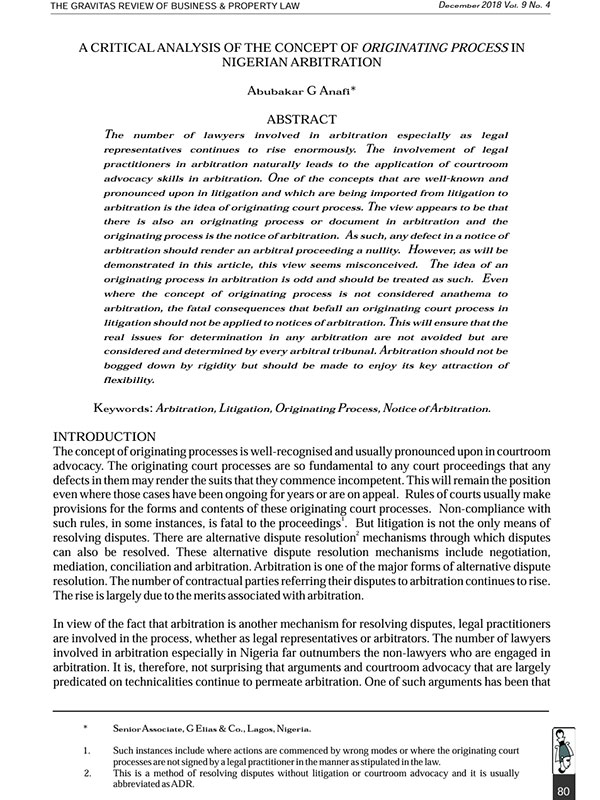
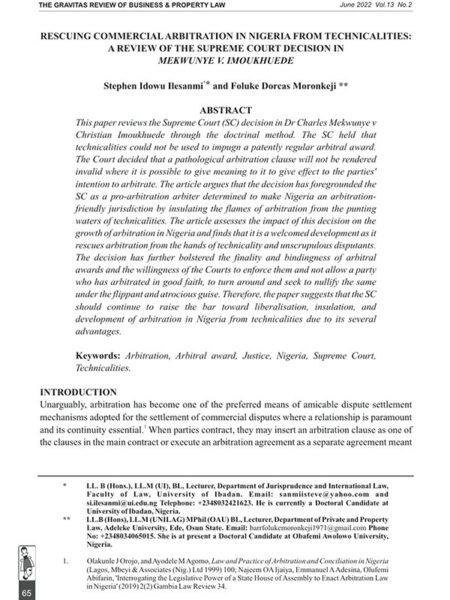
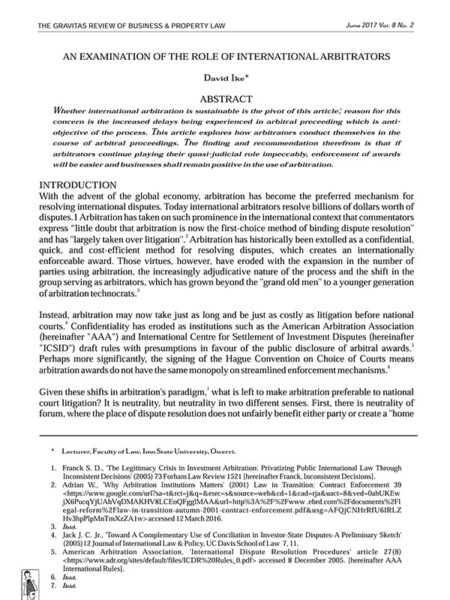
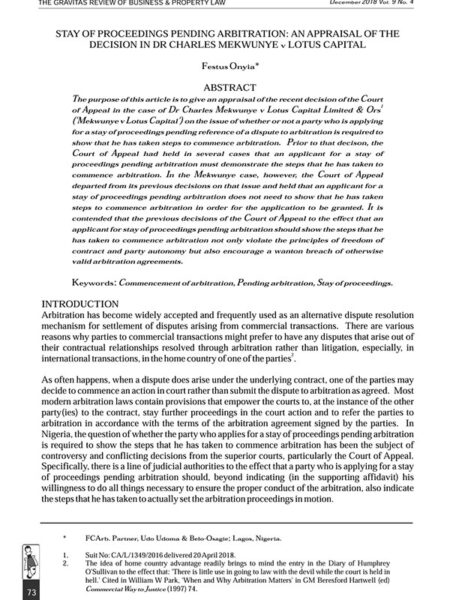
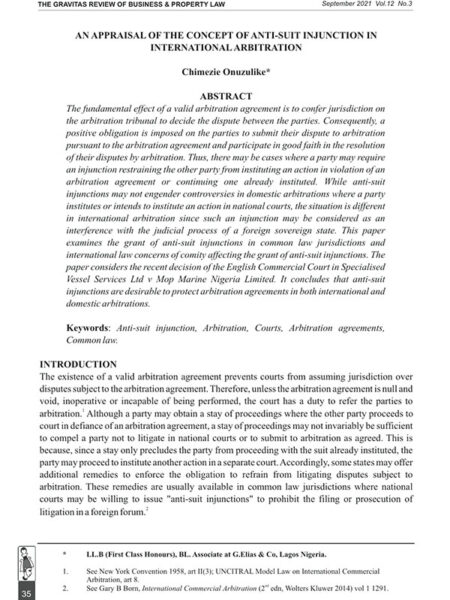


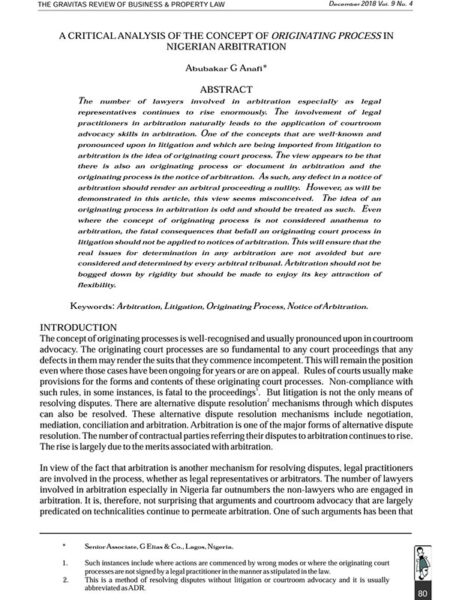
Reviews
There are no reviews yet.